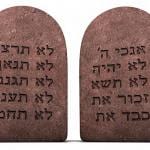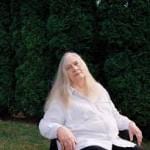Perhaps a novel whose main character is the squadron leader for World War II bombing raids over Germany was not the best reading material while flying from Charleston, SC to Philadelphia on the way back home to Providence last January. But that’s what I found myself doing sitting in first class (the $70 for the upgrade was more than worth it). As it turned out, my round trip to South Carolina to see my son and daughter-in-law run in a marathon was, to date, my only airplane trip of 2020. I found myself thinking about war, fate, and both the worst and best that human beings can be.

The novel is A God in Ruins by Kate Atkinson, the sequel of sorts to her best-selling Life After Life (but A God in Ruins could be read on its own). Although as different as they could possibly be, the two novels are a compelling account of several generations of the Todd family in England through the twists and turns of the twentieth and early twenty-first centuries; Life after Life following the multiple-lived (you need to read it!) Ursula, and A God in Ruins tracking the single life of her younger brother, Teddy. I will provide as few spoilers as possible below—Kate Atkinson is one of the most creative and compelling novelists of our time; if you haven’t encountered her, start now!
World War II as experienced and fought by the British is central to both novels. Much of A God in Ruins is dedicated to Teddy’s experiences as a RAF Squadron Leader, flying dozens of bombing raids against Germany. In the middle of reading a harrowing account of one of these raids on Berlin amidst enemy fire, I looked out the window of my own airplane, first struck by the calm of a nocturnal landscape below illuminated by an almost-full moon and then, ten minutes or so later, the slowly emerging lights of Philadelphia, I imagined that this must be something like what the cities of Germany looked like from above.

Although Teddy’s planes are shot at on more than one occasion, killing some of his crew members and causing him to have to crash land his bomber twice, once in the English Channel and once at his base in Yorkshire, he recognizes that raining death down from several thousand feet altitude is a particularly morally ambiguous form of warfare. During the early years of the war, he believed the propaganda that he was fed from his superiors: Germany started it, and we have to finish it; your bombs are being dropped on exclusively military targets; great care is being taken to avoid “collateral damage;” you are fighting for the freedom of future generations and the preservation of civilization, and so on. He incrementally, and after the war fully, learns that the bombing raids he participated in had created firestorms and that the raids had been sent directly to residential districts.
People were boiled in fountains and baked in cellars. They were burnt alive or suffocated, they were reduced to ash or melted fat. They were trapped like flies on flypaper as they tried to cross the molten tarmac of the streets where they lived . . . Gomorrah. Armageddon. An Old Testament God of spite and vengeance . . . Hamburg wasn’t a turning point, it was a staging post. In the end it led to Tokyo, it led to Hiroshima. At least Cain had to look at Abel’s face.
Next Tuesday in my “Apocalypse” colloquium, we will be discussing John Hersey’s classic Hiroshima, a “you are there” account of similar indiscriminate destruction, similarly justified because those who dropped the bomb believed themselves to be on the side of the angels.
During a short leave, Teddy spends an evening with his big sister Ursula in London; Ursula spends the war in London as a cog in the bureaucratic machine during the day and as a member of a rescue squad putting out fires and helping victims of German bombing raids by night. In the evening they attend a concert, a performance of Beethoven’s Ninth Symphony (no irony there!). As they wait for the music to begin, Ursula reflects on the Friedrich Schiller text that they will soon hear, set to immortal music by Beethoven.
Alle Menschen werden Brüder. Do you think it’s possible? One day? That all men could be brothers one day? People—by which I largely mean men—have been killing each other since time began . . . We’re all primitives underneath, that’s why we had to invent God, to be the voice of our conscience, or we would be killing each other left, right and centre.
To which Teddy replies, “I think that’s what we are doing.”
After the performance, one so transcendent that, toward the end of the final choral movement, Teddy “had the odd sensation that he might actually hold on to his sister to prevent her rising into the air and taking flight,” Ursula and her brother leave the concert hall silently.
“Numinous,” Ursula said, breaking the silence eventually. “There’s a spark of the divine in the world—not God, we’re done with God, but something. Is it love? Not silly romantic love, but something more profound . . . ?’
“I think it’s perhaps something we don’t have a name for,” Teddy said. “We want to name everything. Perhaps that’s where we’ve gone wrong.”
“’And whatsoever Adam called every living creature, that was the name thereof.’ Having dominion over everything has been a terrible curse.”
I like the suggestion that the obsession with naming things, with nailing them down and building boundaries around them, is far more likely to be damaging than to be helpful. Perhaps it is best to recognize the existence of “a spark of the divine” all around and in us without systematizing it further.
Ursula’s reflection reminds me of something I read many years ago from novelist Dorothy Allison, something that has stuck with me ever since.
There is a place where we are always alone with our own mortality, where we must simply have something greater than ourselves to hold onto—God or history or politics or literature or a belief in the healing power of love, or even righteous anger. Sometimes I think they are all the same. A reason to believe, a way to take the world by the throat and insist that there is more to this life than we have ever imagined.
I agree. Although I believe that our desire for the transcendent, for something greater than us that has redemptive value, is itself partial proof of the existence of that very something greater than us—I call it the divine—I am convinced that this desire for the divine can be addressed in many ways–there is no “one size fits all.” During his next bombing raid, Teddy remembers his conversation with Ursula.
Afterwards . . . he resolved that he would try always to be kind. It was the best he could do. It was all that he could do. And it might be love, after all.
If God is love, then being kind in the face of daily temptations to be otherwise is to bring the divine into the world.













